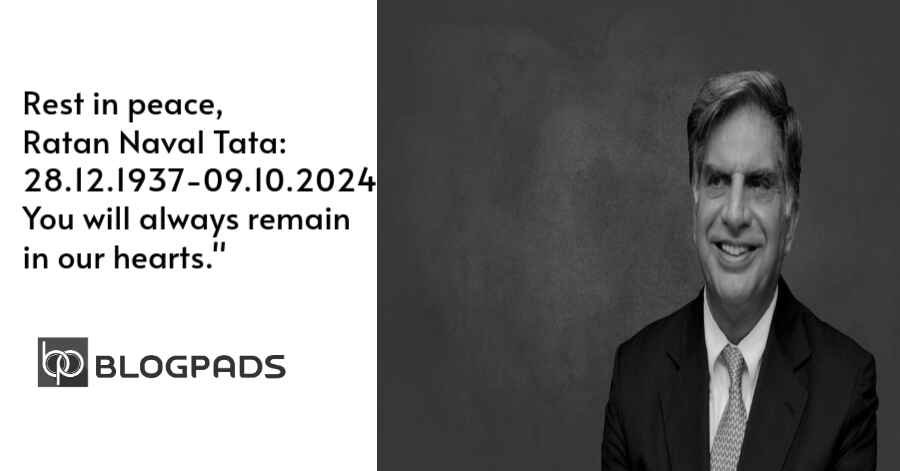1. Introduction
Ratan Naval Tata, an iconic figure in the business world, is much more than a successful industrialist. He is a visionary, a philanthropist, and a man of integrity who has shaped the destiny of one of India’s most influential companies, Tata Group. But who is Ratan Naval Tata beyond the boardroom? What values and principles guide his journey? This article delves into the life of Ratan Tata, exploring his early years, professional milestones, and enduring legacy.
2. Early Life and Education
Ratan Naval Tata was born on December 28, 1937, into one of India’s most prominent business families. However, his early life wasn’t as privileged as one might think. Raised by his grandmother after his parents separated, Tata’s upbringing taught him resilience and humility—qualities that would later become central to his leadership style.
He attended the prestigious Campion School in Mumbai and later Cathedral and John Connon School. Continuing his education in the United States, he graduated with a degree in architecture from Cornell University and completed the Advanced Management Program at Harvard Business School. The international exposure helped broaden his perspective, which later influenced his approach to business.
3. Rise in the Tata Group
After returning to India, Ratan Tata joined the Tata Group in 1961, working on the shop floor of Tata Steel. This hands-on experience allowed him to understand the company from the ground up. Unlike many business leaders who prefer staying in boardrooms, Tata immersed himself in every level of operations, learning the intricacies of each division.
His career took off in 1991 when he succeeded J.R.D. Tata is the chairman of Tata Group. Despite initial skepticism from critics and senior executives, Tata proved his mettle, transforming the company into a global powerhouse.
4. Leadership Style and Vision
Ratan Tata’s leadership style is often described as visionary yet grounded. He believes in leading by example and fostering a culture of integrity and ethical business practices. Unlike leaders who wield power from a distance, Tata is known for his involvement and genuine concern for employees’ well-being.
He once said, “I don’t believe in taking the right decisions. I take decisions and then make them right.” This approach reflects his ability to adapt and innovate, even when uncertain. Tata’s vision for the group was not just to expand profits but to create an organization that contributes positively to society.
5. Major Achievements
Under Ratan Tata’s leadership, Tata Group grew exponentially, with several notable achievements:
- Acquisition of Jaguar Land Rover (JLR): In 2008, Tata Motors acquired the British luxury car brands Jaguar and Land Rover. Despite initial doubts, the acquisition turned out to be a game-changer, boosting Tata Motors’ global presence.
- Tata Nano: In 2009, Ratan Tata introduced the Tata Nano, the world’s most affordable car, to make personal transportation accessible to millions of Indians. Though it didn’t achieve the expected commercial success, it showcased Tata’s ambition to innovate and serve society.
- Tata Consultancy Services (TCS): Tata played a crucial role in expanding TCS, making it one of the leading IT services companies globally.
These achievements are just a few examples of how Ratan Tata transformed the Tata Group into an international conglomerate with interests spanning various industries, from steel to telecommunications.
6. Philanthropic Endeavors
Philanthropy is at the core of Ratan Tata’s philosophy. He believes in using wealth to make a meaningful difference in society. Through Tata Trusts, he has contributed billions of dollars to causes like healthcare, education, and rural development.
- Healthcare Initiatives: Tata Trusts has funded several hospitals and medical institutions, including the Tata Memorial Hospital, which offers cancer treatment to patients from underprivileged backgrounds.
- Educational Programs: Tata has also established numerous scholarships and institutions to promote education, both in India and abroad. His contributions have helped countless students gain access to quality education.
7. Personal Life and Beliefs
Ratan Tata is a private individual, and while much of his life remains away from the public eye, his actions speak volumes about his character. Known for his humility, he lives a relatively simple life, far removed from the opulence one might associate with his stature.
He is passionate about animal welfare and aviation. His love for flying is well-documented, and he holds a pilot’s license. Tata’s personal beliefs revolve around ethics, humility, and the importance of giving back to society, making him a role model for millions.
8. Awards and Recognition
Throughout his career, Ratan Tata has received numerous awards and accolades:
- Padma Bhushan (2000): One of India’s highest civilian honors, awarded for his contributions to trade and industry.
- Padma Vibhushan (2008): The second-highest civilian honor in India, recognizing his significant impact on India’s economic growth.
- Honorary Doctorates: Various universities worldwide have awarded him honorary degrees in recognition of his business acumen and philanthropic efforts.
These awards highlight his multifaceted contributions to industry, society, and the nation.
9. Challenges and Lessons Learned
Despite his successes, Ratan Tata faced numerous challenges. When he took over as chairman, there was resistance from within the company. Many doubted his abilities, but he remained steadfast, gradually winning their trust.
The Tata Nano project, although innovative, did not perform as expected. However, rather than viewing it as a failure, Tata saw it as a learning experience. He once remarked, “Ups and downs in life are very important to keep us going, because a straight line, even in an ECG, means we are not alive.”
10. Legacy and Impact
Ratan Tata’s legacy is not just about the expansion of the Tata Group but the values he instilled. His emphasis on ethics, corporate social responsibility, and philanthropy has set a benchmark for Indian businesses and global corporations alike. Tata Group’s commitment to social causes and community development reflects his vision of a business that serves society, not just shareholders.
Even after retiring as chairman in 2012, Ratan Tata continues to inspire through his involvement in various philanthropic activities and startups. His legacy is a reminder that true leadership is about uplifting others.
11. Conclusion
Ratan Naval Tata is a testament to the power of visionary leadership coupled with humility and integrity. His journey from a young apprentice in the Tata Group to a global business icon is inspiring, and his philanthropic endeavors showcase his commitment to a better world. As India and the world look to the future, Ratan Tata’s legacy will undoubtedly serve as a guiding light for generations to come.
12. FAQs
- Who is Ratan Naval Tata?
Ratan Naval Tata is a prominent Indian industrialist and philanthropist who led Tata Group, one of India’s largest conglomerates. - What are Ratan Tata’s major achievements?
Major achievements include the acquisition of Jaguar Land Rover, the introduction of Tata Nano, and the expansion of Tata Consultancy Services (TCS). - What is Ratan Tata’s leadership style?
His leadership style is visionary and hands-on, emphasizing integrity, ethical practices, and innovation. - How has Ratan Tata contributed to philanthropy?
Through Tata Trusts, he has contributed billions to healthcare, education, and rural development initiatives. - What awards has Ratan Tata received?
He has received numerous awards, including the Padma Bhushan and Padma Vibhushan, India’s highest civilian honors.

